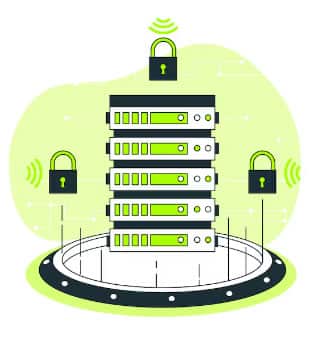Raid Data Recovery Kenya
Raid Data Recovery Kenya – Hi Tech Data Group is the leading provider of Raid Data Recovery in Kenya to recover your critical data quickly and efficiently. Our expert team has the knowledge and experience to handle any Raid data recovery challenge with confidence.
Rest assured, your valuable information is in safe hands with our team of skilled technicians.
Raid Server Data Recovery Nairobi by Experts:
Our certified engineers have over ten years of experience providing Raid Data Recovery Kenya. We offer industry-leading Raid Data Recovery services in Kenya for all Raid levels and configurations. Even severely damaged Raid arrays can be recovered using state-of-the-art tools and techniques.
Types of Raid Systems we recover:
- Raid Types:
- Raid 0 Data Recovery,
- Raid 1 Data Recovery,
- Raid 5 Data Recovery,
- Raid 6 Data Recovery,
- Raid 10 Data Recovery
- Raid 50 Data Recovery etc.
- Raid Configurations: Hardware Raid’s, Software Raids, Motherboard Raids etc.
- Storage Devices: Hard drives (SATA/IDE/SCSI/SAS), SSDs, external Raid devices etc.
- JBOD Data Recovery
Raid Data Recovery Kenya Process:
- Initial Assessment: We will thoroughly examine your failed Raid system to determine the cause of failure and the best way to recover it.
- Data Extraction: We then use specialized tools and technologies to image the Raid drives byte-by-byte in our Class 100 Clean Room. The data is safely extracted without any modification.
- Data Rebuild: If the Raid metadata or file system is corrupted, we reconstruct them to recover your original dataset.
- Data Verification: Finally, the extracted data is verified with Raid parameters to ensure 100% accuracy before being delivered to you.

Why Choose Our Raid Data Recovery Services in Kenya:
- Certified Raid recovery experts with 10+ years experience
- Cutting-edge data recovery technology and tools
- ISO 9001 and ISO/IEC 27001 certified data recovery lab
- Expert evaluation and quotes
- Fast turnaround time
- Emergency services available 24×7
- Economical pricing, no hidden charges
- Strong NDA policies to ensure data confidentiality
- High Recovery Success Rate: We achieve an industry-leading 95%+ success rate in recovering data from failed or damaged RAID systems.
What To Do When Your Raid System Fails
There are many reasons why RAID can fail, including disk failures, controller damage, accidental deletion, etc. Improper actions after a RAID failure can result in permanent data loss. Here are the steps you should take:
- Stop All Write Activity: Immediately stop all read/write operations to the affected RAID to prevent overwriting data.
- Power Down Properly: If the system is still powered on, shut it down through the OS rather than unplugging the power.
- Label Drives: Take note of which slots the RAID drives are installed in and label them properly for easy identification later.
- Seek Expert Help: Contact our RAID data recovery Kenya specialists such as Hi Tech Data Group instead of attempting recovery yourself using DIY tools. This severely lowers the chances of recovering data.
- Provide Raid Details: When contacting us for RAID recovery, provide details like RAID level, HDD make/capacity, controller details and any error messages.
- Do Not Rebuild on Your Own: Rebuilding RAID improperly using healthy disks with a failing disk can spread damage across the array.
- Ship Drives Safely: While transporting disk drives from a damaged RAID system for recovery, pack them very securely to avoid any further physical damage.
Taking the above precautions increases recoverability from failed server RAIDs. Our specialists will further take over with advanced tools and methodologies to rescue your data after you contact us for assistance.
Learn more about data recovery on Servers
Which RAID is best for data recovery?
The best RAID configuration for data recovery depends on the specific needs and requirements of the user or organization. Here are some general guidelines:
RAID 1 (Mirroring)
RAID 1 is considered one of the best RAID levels for data recovery, as it provides a mirror of the data across two or more disks. If one disk fails, the data can be recovered from the remaining disks.
RAID 5 (Striping with Parity)
RAID 5 is also a good option for data recovery, as it provides a balance between performance, storage capacity, and data redundancy. If one disk fails, the data can be reconstructed from the remaining disks.
RAID 6 (Striping with Double Parity)
RAID 6 is similar to RAID 5, but it provides an additional layer of redundancy by using two parity blocks. This makes it more resilient to multiple disk failures, making it a good choice for data recovery.
It’s important to note that while these RAID configurations can improve the chances of successful Raid data recovery, they do not guarantee that all data can be recovered in the event of a failure. Regular backups and proper maintenance of the RAID array are essential to ensure the long-term integrity and recoverability of your data.
Emergency Raid Data Recovery in 24 Hours
We offer 24×7 emergency Raid recovery services in Kenya to get your systems back up as soon as possible after a critical Raid failure.
Our emergency process includes:
- 24/7 availability on phone and email to lodge RAID recovery requests
- Pickup and transportation of your failed RAID device to our lab
- Expedited initial assessment and diagnosis of the RAID issue
- Priority recovery process ahead of standard jobs
- Continuous recovery effort round-the-clock by dedicated engineers
- Quick configuration and rebuilding of the RAID system
- Fast delivery of recovered data via secure electronic transfer
- Return shipment of the recovered RAID device
With our emergency raid data recovery Kenya service, we can recover your vital data and get your critical systems back up and running within 24 hours.
NB: The data recovery timeline can change depending with the extent of damage ie physically damaged drives, previous recovery attempts etc.
-
How much does RAID recovery cost in Kenya?
The cost of raid data recovery Kenya can vary depending on several factors, such as:
1. The type of RAID configuration
2. The severity of the data loss or damage
3. The amount of data that needs to be recovered
4. The complexity of the recovery process
5. The expertise and equipment required by Raid Data Recovery Kenya providers
It’s important to consult Professional Raid Data Recovery Kenya, for data recovery services in Nairobi and get an accurate estimate for your particular case. -
Is it possible to recover data from RAID?
Yes, it is possible to recover data from RAID configurations, but the process can be complex and may require the expertise of professional data recovery specialists in Kenya. RAID arrays are designed to provide data redundancy and improve performance, but they can also make data recovery more challenging in the event of a failure or data loss.
The success of RAID data recovery Kenya depends on factors such as the RAID level, the extent of the damage or failure, and the specific hardware and software used to set up the RAID array. In some cases, it may be possible to recover data from a failed RAID array using specialized tools and techniques, but in other cases, the data may be irretrievable.

